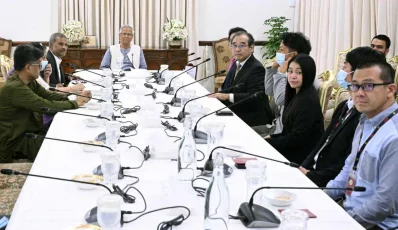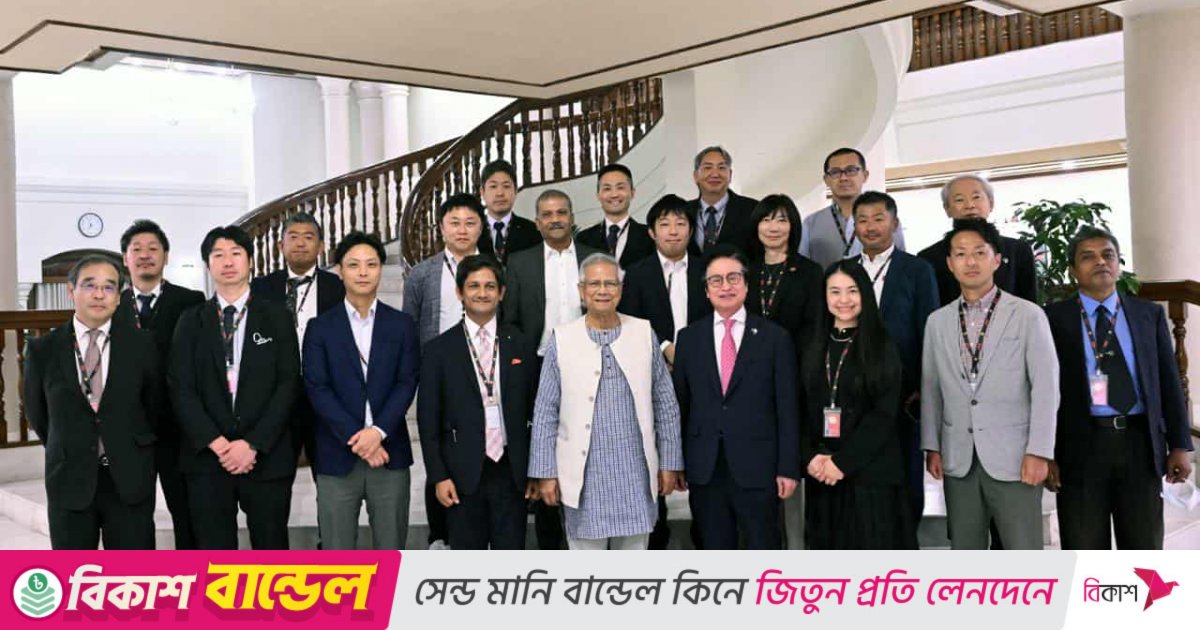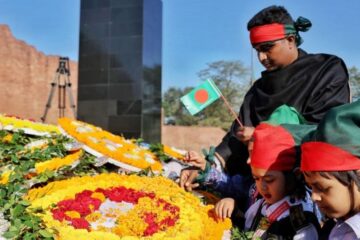A 23-member delegation from Japan’s National Business Support Combined Cooperatives (NBCC) met Chief Adviser Professor Muhammad Yunus on Sunday at the State Guest House Jamuna to discuss progress on recruiting 1,00,000 skilled Bangladeshi workers under a new employment framework.
The meeting was attended by Dr Asif Nazrul, adviser on Expatriates’ Welfare and Employment, and Lamiya Morshed, chief coordinator (SDGs) to the chief adviser.
NBCC — a federation of more than 65 Japanese companies — recently signed a Memorandum of Intent (MoI) with Bangladesh to facilitate training, certification, and recruitment of skilled workers for Japan under programs such as the Technical Intern Training Program (TITP) and the Specified Skilled Workers (SSW) initiative. The agreement aims to employ over 1,00,000 Bangladeshi workers in Japan within the next five years.
According to the delegation, the first phase of the recruitment process is already underway, with 2,000 skilled workers expected to be hired in 2026. An additional 6,000 workers will be recruited in 2027 and 18,000 in 2028.
The highest demand is expected in the construction, service, aviation, garment, and agricultural sectors. Future opportunities will also expand in the driving, automobile, and recycling industries.
To prepare the workforce, training is being provided at two centers in Khulna and Kapasia (Gazipur). NBCC representatives have already visited the centers to assess progress.

During the meeting, Chief Adviser Yunus inquired about possible gaps in training quality. NBCC Chairman Mikio Kesagayama, who led the delegation, said: “When I visited the training centers last March, the facilities were in early stages. Now, after seven months, I’m impressed by the progress. The training quality has improved significantly, and we’re confident we can start recruiting 2,000 skilled workers next year.”
However, Kesagayama noted that improving the trainers’ Japanese language proficiency would further enhance outcomes.
Emphasizing language as a key challenge, Chief Adviser Yunus suggested virtual classes conducted by Japanese instructors, as well as inviting Japanese trainers to Bangladesh for in-person sessions.
He also highlighted the potential of Bangladeshi women in caregiving roles, saying: “Bangladeshi women are caring, hardworking, and capable. With proper language and professional training, they can play an exceptional role in Japan’s caregiving sector.”
NBCC representatives said Japan will need more than 4,00,000 nurses in the coming years and expressed interest in recruiting more from Bangladesh.
Adviser Dr Asif Nazrul noted that the government is closely monitoring progress in Japan-bound employment and is preparing a clear roadmap to ensure smooth implementation. A dedicated cell has already been established at the ministry to address recruitment-related challenges.



